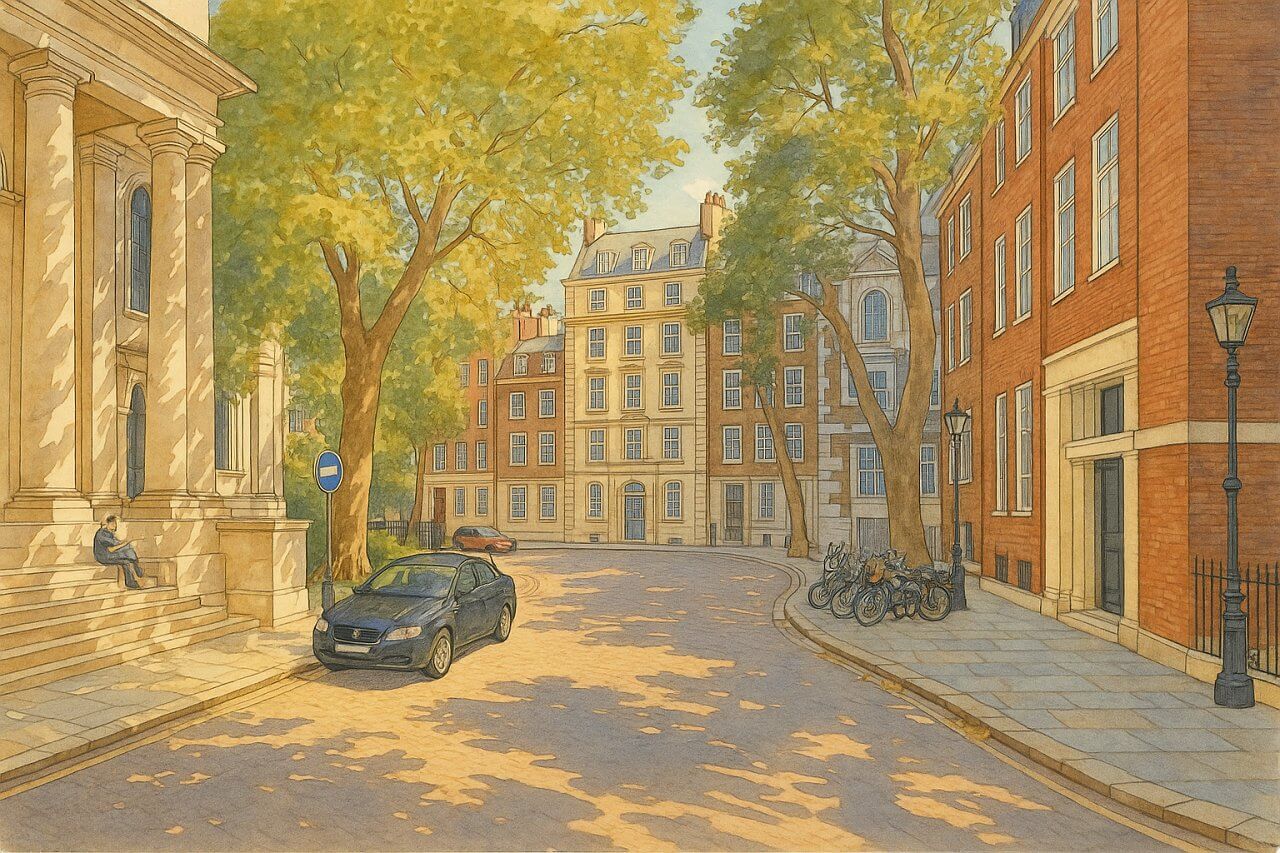
Smith Square, London
Smith Square, Westminster: A Quiet Georgian Gem in the Heart of London
Smith Square is located in the heart of Westminster, within the City of Westminster in central London. It lies just south of Parliament Square and is closely surrounded by landmarks such as the Palace of Westminster and Westminster Abbey.The square forms a small, rectangular loop off Millbank and Horseferry Road and is part of an area renowned for its tranquil charm and proximity to the UK’s political centre.
How Long is Smith Square?
Smith Square is a compact road that encircles the namesake square, measuring approximately 220 metres (720 feet) in perimeter. It’s a short route, ideal for a peaceful stroll amidst period architecture and leafy surrounds.History of Smith Square
Smith Square dates back to the early 18th century. The area was developed as part of Westminster’s expansion during the Georgian period, particularly between the 1720s and 1740s, when many grand townhouses were built for the political and social elite.The central church, St John the Evangelist, was built between 1728 and 1733. It served as a parish church until it was deconsecrated after World War II due to bomb damage. It was later repurposed into a concert venue, now known as St John’s Smith Square, the home of the Sinfonia Smith Square.
Origin of the Name
Smith Square is named after Henry Smith, a wealthy 17th-century philanthropist who endowed charitable foundations and educational initiatives. Although the square itself was developed posthumously, his name lived on due to the land’s association with his charitable estate.The central landmark, now the Sinfonia Smith Square, adds to the square’s cultural identity. It is a celebrated concert venue that attracts classical musicians from around the world, reinforcing the area’s reputation as a refined and artistic enclave.
Streets Connecting to Smith Square
Smith Square is connected to several small but historically important streets in Westminster:- Dean Trench Street – connects Smith Square with Tufton Street to the west.
- Gayfere Street – leads northward toward Great Peter Street.
- Lord North Street – runs parallel to Gayfere Street, filled with early Georgian homes.
- Dean Stanley Street – links the east side of the square to Millbank.
- Dean Bradley Street – a short connector road between Smith Square and John Islip Street.
Real Estate and Property Values
Smith Square is among the most desirable residential enclaves in Westminster. As of April 2025, the average property price in Smith Square exceeds £3.8 million, with townhouses often commanding over £5 million.By comparison, the average London property price stands at approximately £715,000, making Smith Square a premium location.
Most homes here are elegant Georgian terraced houses ranging in size from 2,000 sq ft to over 4,000 sq ft (185–370 sq metres). Many have been beautifully restored and are protected by conservation regulations.
Character of Smith Square
Smith Square is primarily a residential street, though it also includes cultural and political uses. Several buildings are used as offices for think tanks, non-governmental organisations, and private institutions, particularly those close to Millbank and Horseferry Road.Despite its central location, Smith Square is remarkably quiet, with limited traffic and a distinct sense of calm. The presence of St John’s concert hall adds an artistic, cultural layer to the area’s atmosphere.
Nearby Underground Stations
Smith Square is well-served by public transport. The nearest London Underground stations include:- Westminster Station – served by the Jubilee, District, and Circle lines; approximately 7 minutes’ walk away.
- St James’s Park Station – served by the District and Circle lines; about 8 minutes on foot.
- Victoria Station – for National Rail, Underground (Victoria, District, Circle), and coach services; roughly 12–15 minutes’ walk.
Fun Fact About Smith Square
During the 20th century, the church at the centre of Smith Square was nicknamed “the wedding cake church” because of its ornate, tiered Baroque architecture. Its unique design stands out among London’s churches.After World War II bomb damage, the church was restored and transformed into the classical concert hall that stands today. Sinfonia Smith Square continues to attract top-tier musicians and visitors from around the globe, contributing to the square’s ongoing cultural relevance.
Quick Facts about Smith Square
- Location: Westminster, City of Westminster, London
- Length: Approx. 220 metres (720 feet) perimeter
- Developed: Early 18th century (1720s–1740s)
- Name Origin: Named after philanthropist Henry Smith
- Main Landmark: Sinfonia Smith Square (St John’s concert hall)
- Connected Roads: Dean Trench St, Gayfere St, Lord North St, Dean Stanley St, Dean Bradley St
- Character: Residential with cultural and institutional presence
- Nearest Stations: Westminster, St James’s Park, Victoria
- Real Estate Price (Apr 2025): Avg. £3.8 million (vs. £715,000 London avg.)
- Property Size: 2,000–4,000 sq ft (185–370 sq metres)
- Fun Fact: St John’s Church was nicknamed "the wedding cake church"
Map of Smith Square, London

Painting of Smith Square, London (View image in full size)